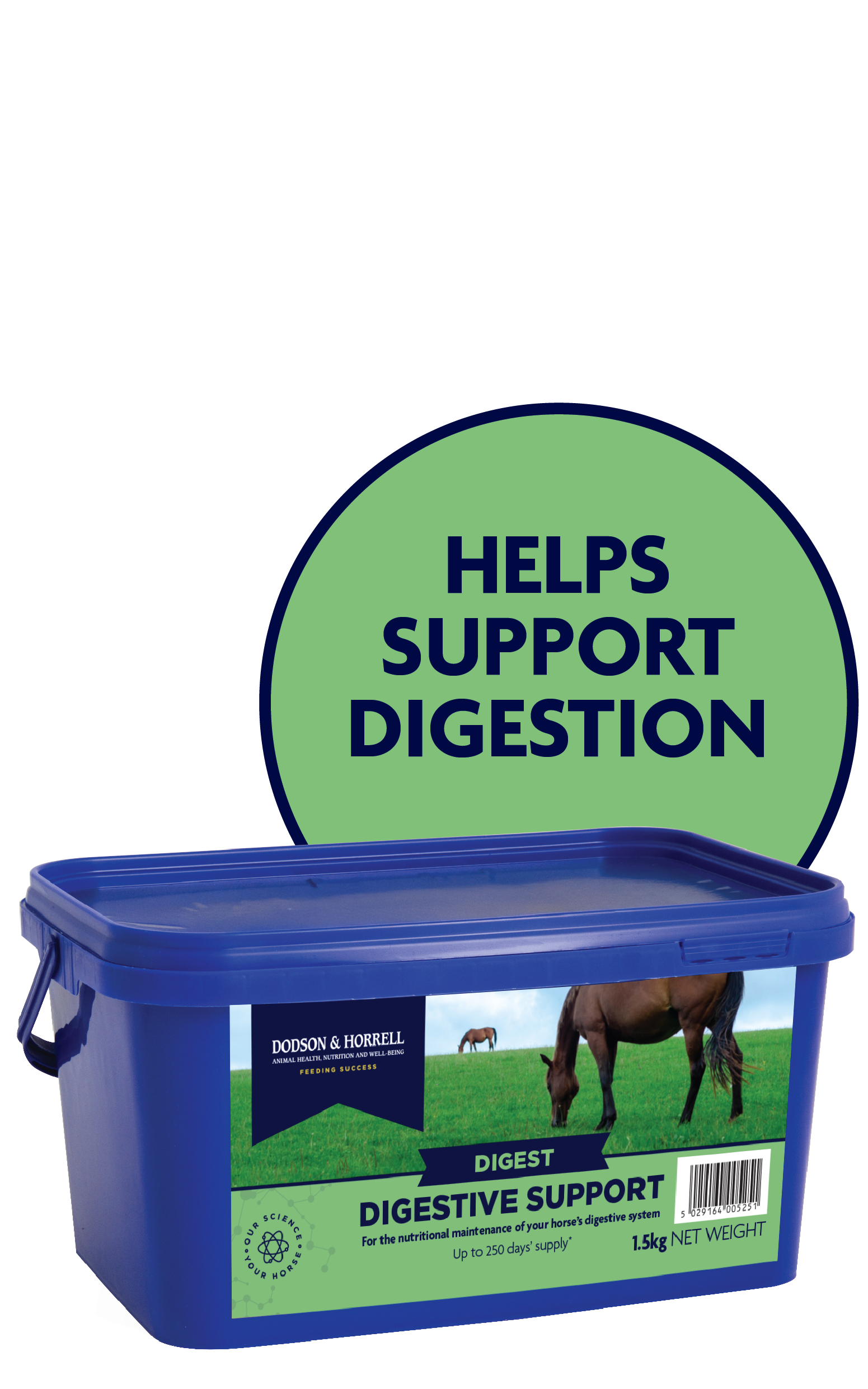Feeding Horses on Box-Rest
Box-rest can be a very challenging time for both you and your horse. The pressure of trying to keep your horse happy, concern about the underlying condition, and the additional workload can all make box-rest very stressful for horses. Adapting your horse's diet whilst your horse is on box-rest is crucial and providing nutritional support can help to give your horse the best possible chance of a speedy recovery.
Support Normal Intestinal Function:
- Putting your horse on box-rest can disrupt normal intestinal movement and bacterial population
- It is essential to manage your horse's transition to box-rest carefully to keep the gut functioning as normal as there is an association between sudden periods of time confined to a stable and incidence of colic
- Maintain fibre intake with ad lib forage, and adding a low-calorie chaff such as Fibergy to meals
- Introducing Kwikbeet to your horse's diet, which has a mild laxative effect, can promote digestive function
- Divide concentrate feed into several small meals per day
- Support to the digestive system can be provided by supplements containing prebiotics or probiotics such as Digestive Support or Yea-Sacc
Reduce Calorie Intake:
- A sudden decrease in your horse's activity levels mean that they require fewer calories
- If calorie intake is not reduced your horse could be at risk of:
- Rhabdomyolysis (Tying-up)
- Weight Gain
- Struggling to settle in a new routine
- As a general guideline, the quantity of hard feed should be reduced by half
- If you are feeding less than the recommended amount, then it is important to top up your horse's diet with our Daily Vitamins and Minerals Supplement or a balancer such as our Ultimate Balancer
Preventing Boredom:
- We all know how boring long periods of bed rest can be - it is no different for horses!
- Boredom can lead to stereotypic behaviours such as cribbiting, weaving and box walking, leading to a stressed horse.
- Ensuring that your horse has plenty of forage to chew can help to prevent boredom. If possible forage should be provided ad-lib
- Using two small-holed haynets inside each other is a great way to make hay last longer
- Hiding low calorie treats such as our Equi-Bites in a haynet or hanging vegetables such as turnips from a string in the stable can help to reduce boredom
- Stable toys can be helpful - always check with your vet that they will not aggrevate your horse's injury
- Horses are herd animals so having a companion next door and regular grooming can help to alleviate stress
- Some horses will respond well to a mirror placed on the stable wall or a radio playing nearby
Maintaining Body Condition:
- This can be very challenging - some horses will gain condition due to reduced exercise, whereas some will be stressed leading to reduced appetite and weight loss
- Using a weightape to measure your horse's bodyweight every fortnight is important
- For horses who may gain too much condition feeding a low-calorie chaff such as Fibergy alongside a balancer, for example, Ultimate Balancer, could be ideal
- Convalescent Muesli is a higher calorie feed formulated for racehorses or performance horses at rest or recovery
- If your horse's appetite decreases then extra B vitamins could stimulate your horse’s appetite, and garlic and mint increase palatability of feed
- Our Nutritional Advisors can help you find the best feed for your horse whilst on box rest
Promoting Healing:
Additional Supportive Care:
- Horses on box rest can be exposed to more dust and spores from hay - soaking hay for 30 minutes can help
- Use dust-free bedding
- Ensure the stable is well ventilated to promote respiratory health
- Maintaining water intake is important to reduce the risk of compaction colic. Providing lukewarm water or adding a small amount of cordial can tempt fussy drinkers
Recommended Products - Horse Feed For Stressy Horses:
- Convalescent Muesli - An oat free muesli for horses in recovery or resting. Contains digestive support, additional vitamin E and QLC antioxidants
- Ultimate Balancer - Ideal for good doers on box-rest to ensure they get all the vitamins and minerals they need. High in essential amino acids, B-vitamins and antioxidants to promote recovery
- Fibergy - A low-calorie blend of alfalfa and oat chaff, suitable for all horses and ponies. High in fibre to promote chewing and gut motility.
- Digestive Support - A combined approach digestive supplement containing Yeast, Pre-biotics and Psyllium for the nutritional maintenance of healthy hindgut function and pH
Top Tip! - Spread your horse's meals and forage out as much as possible over the day, including a late evening feed. This will help to reduce boredom and promote healthy hindgut function.
Contact us for advice on how to get the best from your horse
Call our helpline
01270 782223or use our
LiveChat



